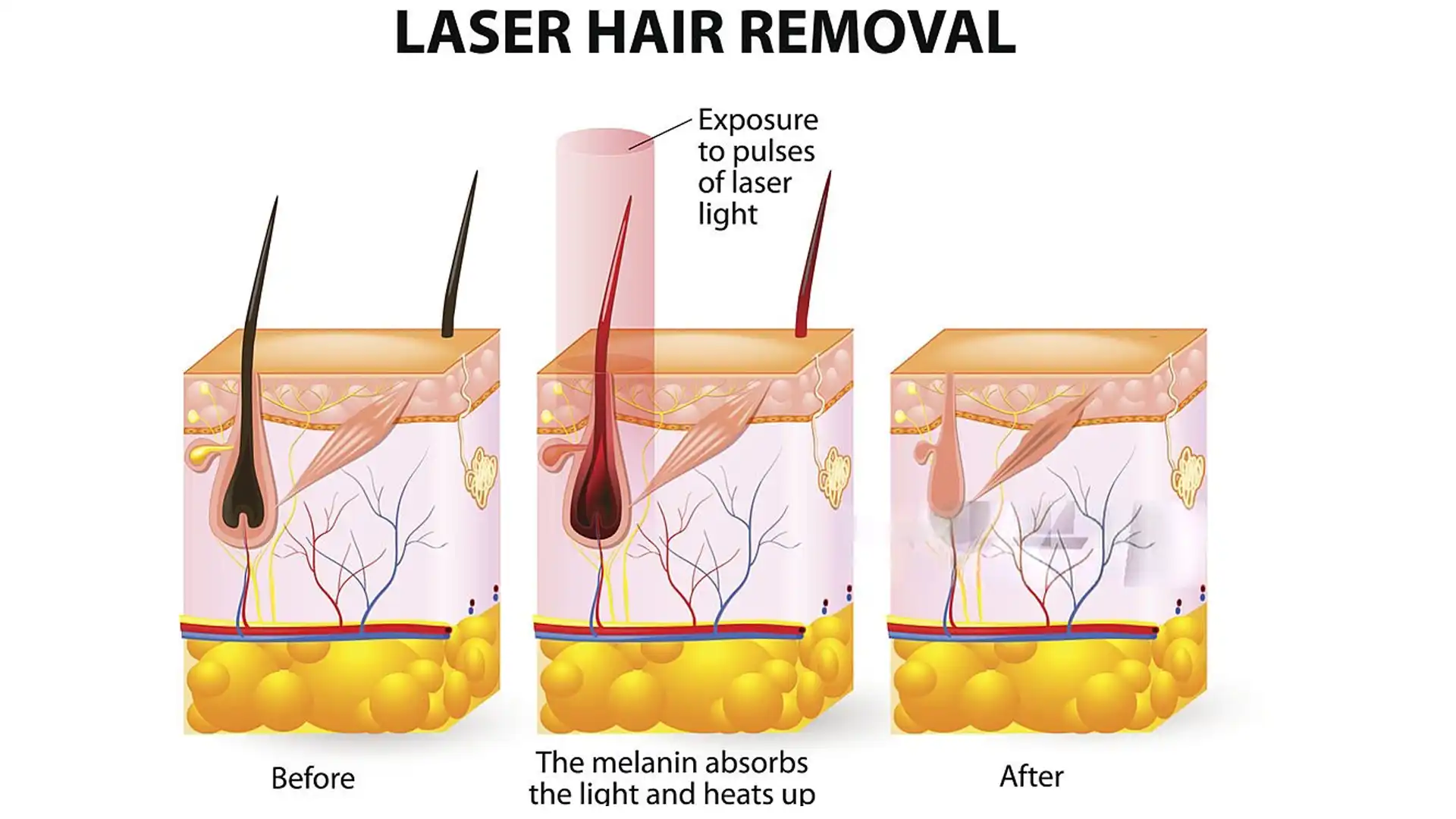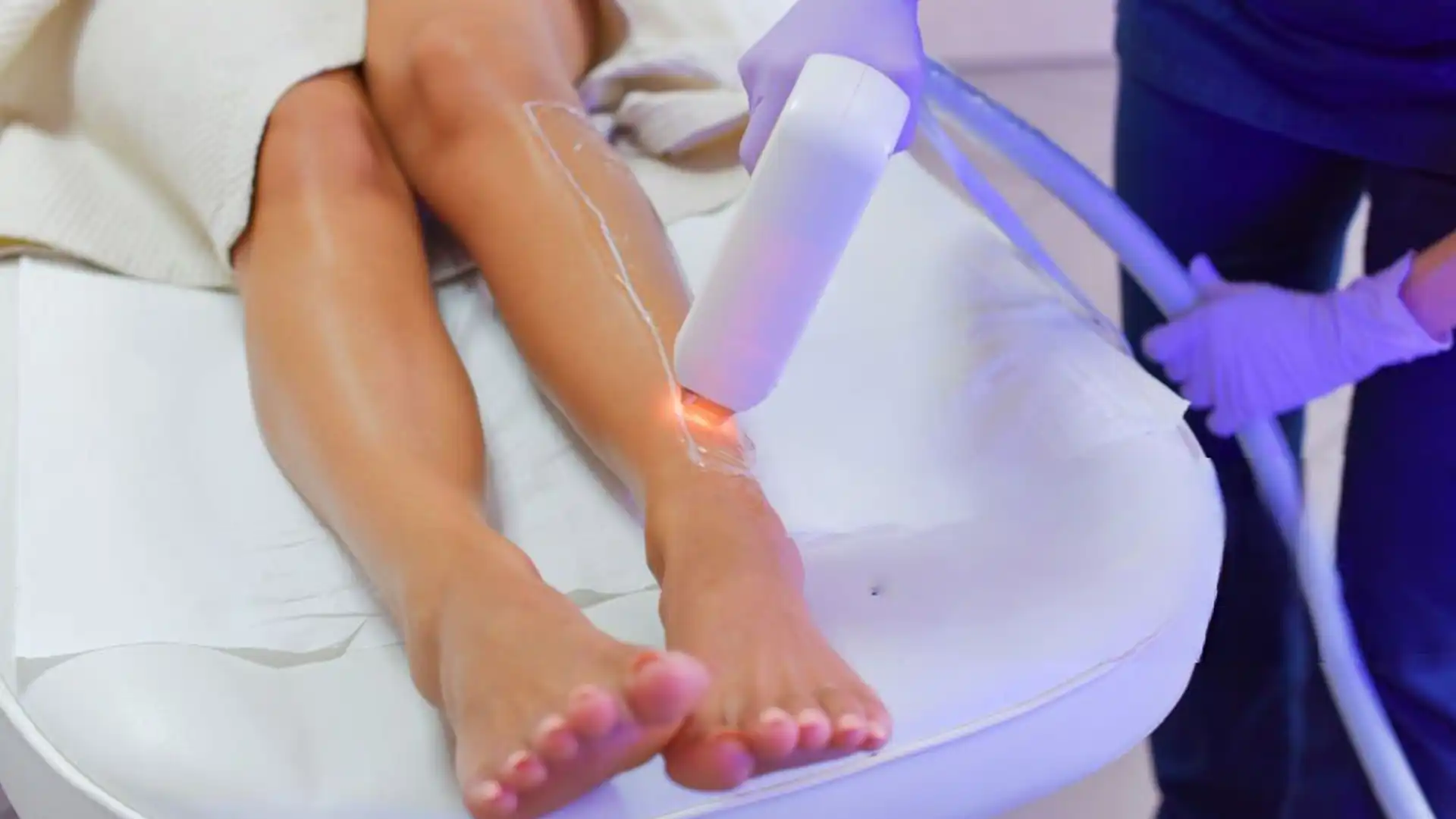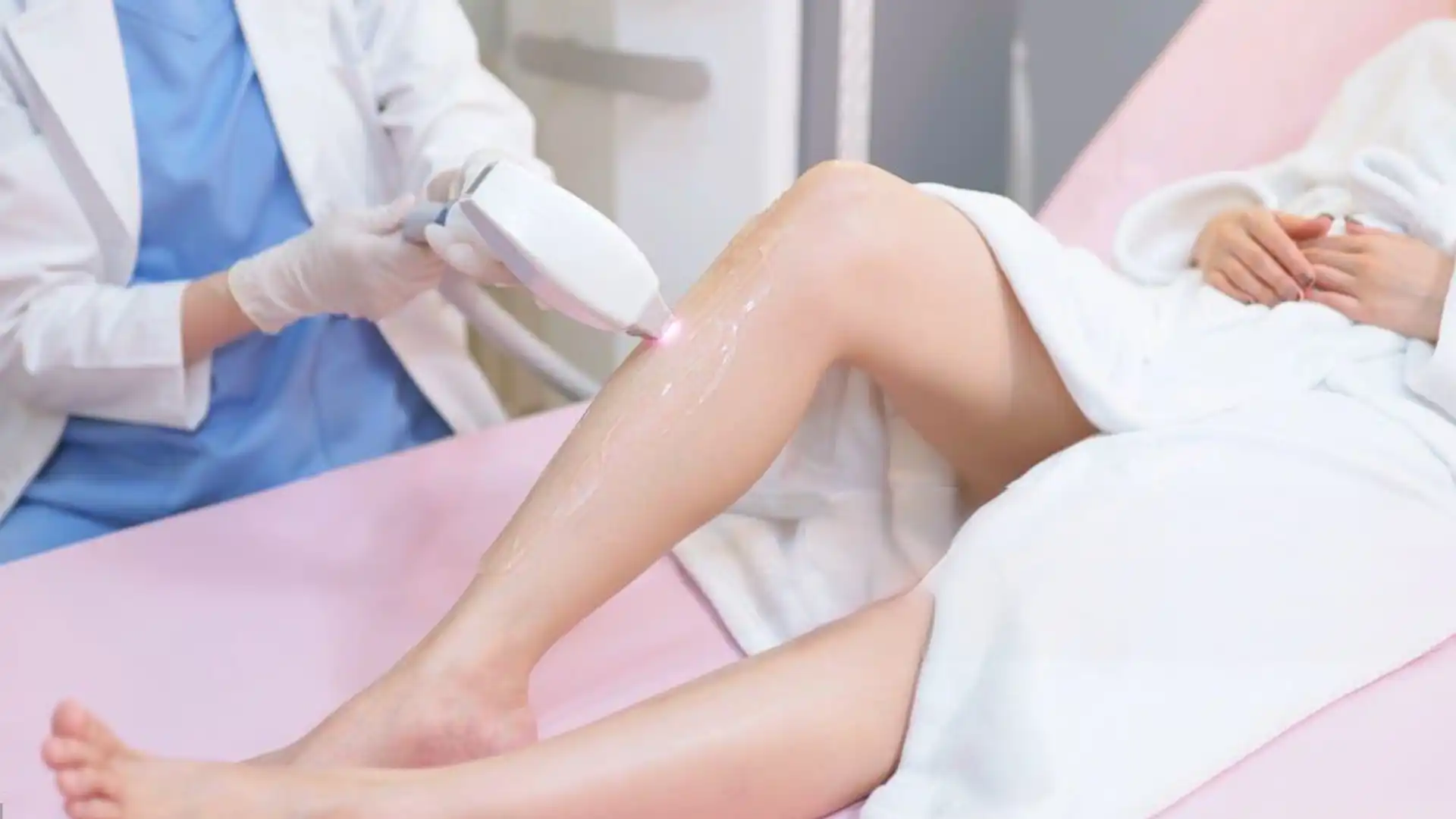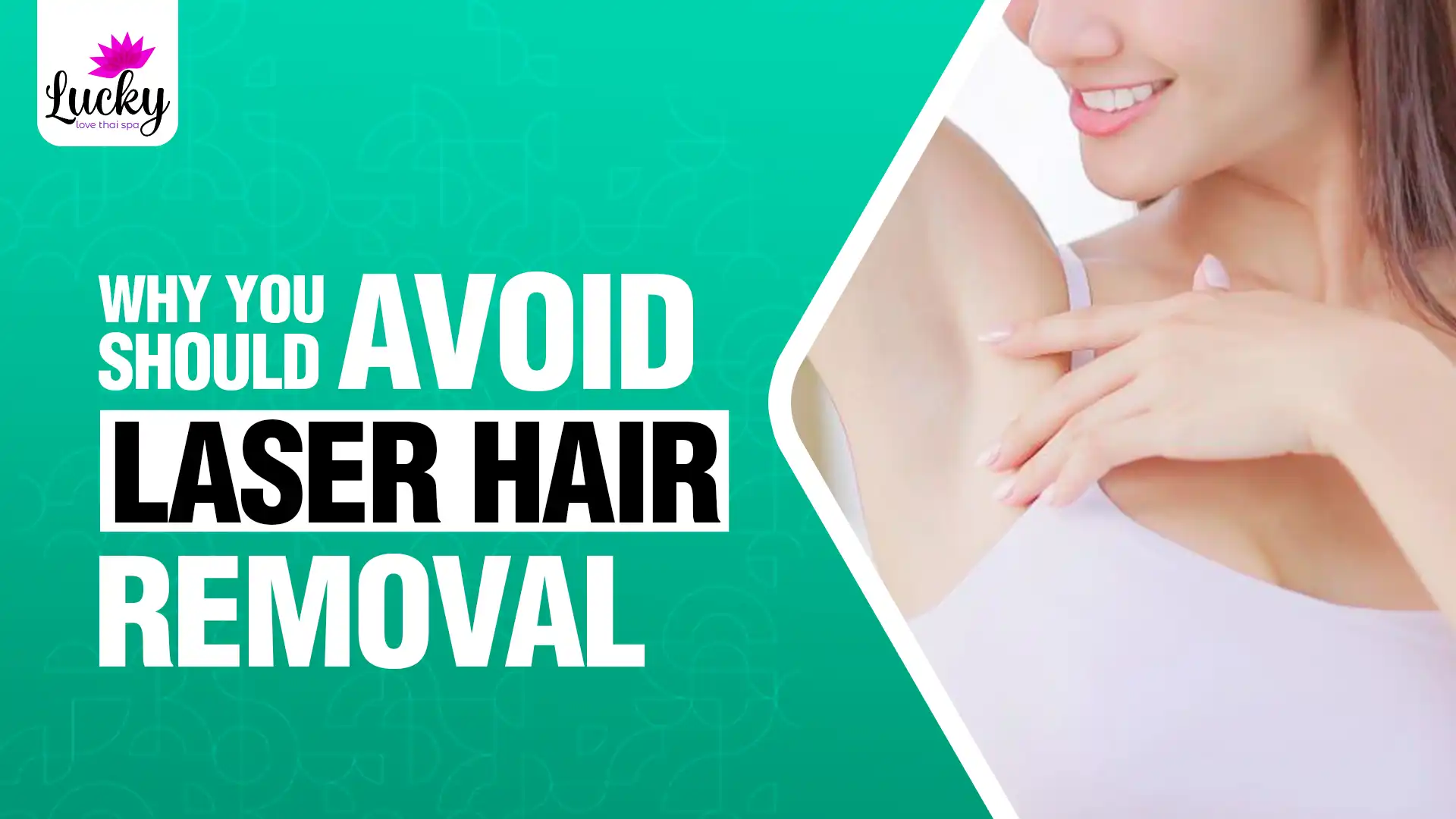Everywhere you turn, you’ll hear that laser hair removal is a miracle for unwanted hair, marketed as safe, effective, and even permanent. But is it really the flawless solution it claims to be? While smooth, hair-free skin is tempting, it’s important to know why you should avoid laser hair removal, especially if you have sensitive skin or a unique hair type.
In this guide, I will discuss how a laser hair removal device works, reasons to avoid laser hair removal, its side effects, and rare but real risks. Also, introduce gentle, natural alternatives that align better with your beauty goals and long-term skin wellness.
What is Laser Hair Removal and How Does It Work?

Laser hair removal is a cosmetic procedure that reduces unwanted hair with a strong beam of light. The laser targets melanin (pigment) in the hair follicle. Once absorbed, the light is converted to heat and destroys the follicle, reducing hair growth in the future.
While advertised as permanent, it typically results in less hair growth but does not result in complete or permanent hair removal. It requires multiple sessions and maintenance treatments. Results are based on skin colour, hair colour, and hormonal factors.
Is Laser Hair Removal Safe?
Laser hair removal is generally described as safe, especially when performed by experienced professionals using FDA-approved devices. However, “safe” doesn’t mean risk-free, and for some people, the risks outweigh the benefits.
Although it’s a non-invasive procedure with no downtime, various factors, such as skin tone, poor technique, or underlying conditions, can raise complications.
Why Should You Avoid Laser Hair Removal?

From minor side effects of laser hair removal to serious risks, this is why you should avoid getting laser hair removal:
Top 7 Reasons You Should Avoid Laser Hair Removal:
-
Skin Irritation & Redness After Laser
Does laser hair removal commonly cause redness or skin irritation? Yes, it can, especially in sensitive areas. The laser’s heat affects surrounding skin, causing irritation that typically lasts 24–48 hours post-treatment.
-
Changing Pigment in Darker Skin
Does laser hair removal cause skin discolouration in dark skin tones? Yes, hyperpigmentation or hypopigmentation may occur, especially in Fitzpatrick skin types IV–VI. Melanin is targeted by the laser, which causes permanent discolouration that may be difficult to reverse.
-
Burns & Scars From Poor Handling
Laser hair removal requires precisely calibrated settings. If done incorrectly, it can result in burns, blisters, or permanent scarring, especially when handled by inexperienced technicians.
Note: For those more focused on skin smoothness and care, gentle options like body scrubs and Thai massage can help maintain healthy, glowing skin without the risk of injury.
-
Eye Damage
Laser treatments performed near the eyes pose a very real risk of retinal burns and permanent eye damage. Even reflected laser beams from metallic surfaces (like jewellery or mirrors) can cause serious injury.
-
Paradoxical Hair Growth Effect
Have you heard that laser hair removal can cause more hair to grow? Yes, although rare, this effect is called paradoxical hypertrichosis. The treatment may stimulate thicker, denser hair in the treated area, requiring additional sessions and often leading to frustration.
-
Cost Without Permanent Results
Thinking laser hair removal is a one-and-done solution? No, unfortunately, it’s not always permanent. Many people require 6–8 expensive sessions, and hair may return due to hormones or finer strands that are difficult to get rid of long-term.
-
Scabbing & Infection Post-Treatment
Can poor aftercare lead to problems like scabbing or infection? Yes, especially if the skin crusts or blisters after treatment. This offers a route for bacterial infection when the skin is not cleaned and moisturized regularly during the healing process.
Can You Get Laser Hair Removal While Pregnant?

Though laser hair removal is an extremely popular cosmetic procedure, it is not recommended during pregnancy. The primary reason is the absence of comprehensive, long-term clinical studies confirming its safety for expectant mothers and their developing babies.
Without such evidence, most medical professionals advise against the procedure as a precaution. This is particularly true during the first trimester, when the fetus undergoes critical development.
Here are several medically informed reasons why you should avoid laser hair removal while pregnant:
Lack of Research on Safety
There is limited clinical data on how laser hair removal affects pregnant women, which means its safety for you and your baby remains uncertain.
Hormonal Changes Affect Results
Hormonal fluctuations during pregnancy may cause abnormal or excessive hair growth. This makes laser therapy inefficient and unpredictable during this time.
Skin Sensitivity Increases
A pregnant woman’s skin is more sensitive, which can make laser hair removal more painful or even cause adverse reactions like burns, rashes, or pigmentation changes
Potential Risk to Fetus
Although lasers treat only the skin surface, there is a theoretical risk of exposure to the fetus when treating the abdomen or bikini line.
Which Skin Types Are at Risk from Laser Hair Removal?
Certain skin types are more at risk during laser hair removal, especially darker skin tones (Fitzpatrick types IV to VI) and very light hair colours. That’s because most laser devices target melanin (pigment) in the hair follicle, which can mistakenly affect surrounding skin if there’s not enough contrast between hair and skin.
In dark skin, the risk of hyperpigmentation, hypopigmentation, and burns is higher when using the wrong type of laser. On the other hand, people with blonde, red, or grey hair can have poor results since their hair contains little melanin for the laser to target.
To stay safe, it’s crucial to choose the right laser technology (like Nd: YAG for darker tones) and get treated by a trained professional. Always do a patch test first and avoid DIY devices if you’re not in the ideal skin-hair match group.
Does At-Home Laser Hair Removal Work?
You may ask, “Can I do laser hair removal at home?” Yes, but you should take certain precautions. These devices are designed for convenience and safety, so they are an option for people who desire gradual hair reduction.
They are ideal for certain hair and skin types but do not work as well as those found in professional salons. They are perfect for small areas and maintenance but may not deliver long-term, salon-quality results.
Pros of Home Laser Hair Removal:
- Convenient and cost-effective
- Great for small areas and maintenance
- Offers privacy
Cons of Home Laser Hair Removal:
- Results take time and may be temporary
- Less effective on dark skin or light hair
- Risk of side effects if misused
How to Safely Manage Side Effects After Laser Hair Removal

Managing side effects after laser hair removal is all about proper aftercare and knowing what to expect. Mild redness, swelling, or a sunburn-like sensation is common and usually temporary.
To promote healing and stay safe, follow these things:
- Apply a cold compress to soothe irritation and reduce swelling.
- Use a gentle, fragrance-free moisturiser to keep skin hydrated.
- Avoid sun exposure and always use broad-spectrum SPF to prevent pigmentation issues.
- Skip hot showers, saunas, or intense workouts for 24–48 hours.
- Avoid exfoliating or harsh skincare products on treated areas for a few days.
- Never pick or scratch if the skin feels itchy; this can cause scarring or infection.
If you notice persistent redness, blistering, or unusual discomfort, consult a dermatologist. With the right care, most side effects fade within a few days.
Safer, Skin-Friendly Alternatives to Laser Hair Removal
If laser isn’t the right fit, here are some effective and safer hair removal methods to consider:
Sugaring
A centuries-old technique using a natural blend of sugar, lemon, and water. Sugaring is less abrasive than waxing, adheres only to the hair (not the skin), and is ideal for individuals with sensitive or reactive skin types.
Waxing (with discretion)
Effective for removing coarse or thick hair, particularly on larger body areas. If you have sensitive skin, you should proceed cautiously, as it can result in inflammation or ingrown hairs.
Electrolysis
According to the FDA, electrolysis is a permanent hair removal method that uses low-level electrical currents to destroy the hair follicle. In contrast to lasers, it is safe and effective for everyone, making it a viable long-term option for those seeking comprehensive results.
Final Thoughts
After exploring the reasons why you should avoid laser hair removal, you can see it’s not as effective as advertised. The benefits of laser treatment are often highlighted as modern and efficient, but they are not appropriate for everyone. Awareness is power. By recognizing potential risks and exploring alternative paths, you’re choosing self-care rooted in knowledge, intention, and respect for your skin’s unique needs.
Frequently Asked Questions
How Does Diode Laser Hair Removal Work?
Diode laser hair removal targets the melanin in a hair follicle using a very precise wavelength of light. When this light is absorbed by the pigment, it converts to heat, destroying the follicle and preventing further growth of the hair.
Is Laser Hair Removal Safe for Teenagers?
Yes, laser hair removal is usually safe for teenagers if done by a professional. Moreover, teenagers who have not yet reached puberty may also need parental consent.
Can I Use Moisturizer After Laser Hair Removal?
Yes, a fragrance-free moisturizer may calm the skin after laser hair removal. However, waiting 24–48 hours after treatment is always best to avoid irritation.
Does Hair Grow Back Thicker After Laser Hair Removal?
No, hair typically grows back finer and lighter after laser hair removal. In rare cases, a condition called paradoxical hypertrichosis may cause thicker hair growth in treated areas.
Does Laser Hair Removal Last Permanently?
No, while laser hair removal offers long-term hair reduction, it’s not permanent. Multiple sessions are required, and some hair may regrow over time.
Why Does Laser Hair Removal Hurt?
Laser hair removal hurts since the laser releases heat that destroys hair follicles, causing a burning or snapping sensation. Pain will vary with the sensitivity of the skin, the treatment area, pain tolerance, and the technology used in the laser.

